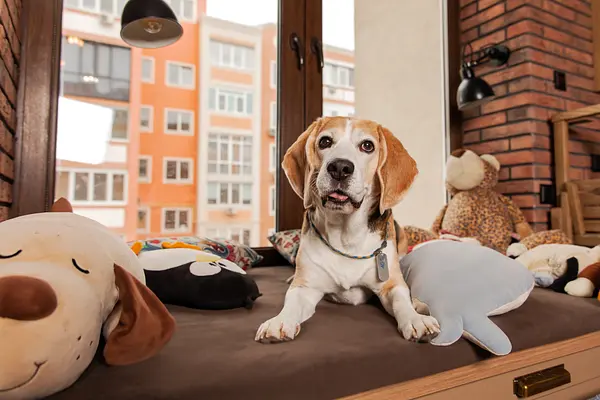Raising a puppy in an apartment comes with its own set of unique challenges, particularly when it comes to sleep. Puppies are still learning to control their vocal cords, and their whines, barks, and howls can easily disturb neighbors, leading to noise complaints. However, with the right strategies and a little patience, you can help your furry friend learn to sleep quietly and peacefully, ensuring a harmonious living environment for everyone.
Understanding Puppy Sleep Behavior
Puppies, like human babies, need a lot of sleep to support their growth and development. However, they also have shorter sleep cycles and may wake up more frequently during the night. Additionally, puppies may vocalize when they feel lonely, anxious, or in need of a potty break. By understanding these normal sleep behaviors, you can better address any noise issues that arise.
Strategies for Minimizing Noise Complaints
Establish a consistent sleep routine: Create a bedtime routine that includes a final potty break, a calm activity, and a clear signal that it's time to sleep. Stick to this routine every night to help your puppy understand when it's time to settle down quietly.
Provide a comfortable sleep environment: Set up a cozy bed or crate for your puppy in a quiet area of your apartment, away from high-traffic zones. Consider using a white noise machine or soft music to help mask any outside noises that may disturb your pup's sleep.
Gradually acclimate your puppy to alone time: Begin by leaving your puppy alone for short periods during the day, gradually increasing the duration over time. This can help them learn to feel more secure and less anxious when left alone at night.
Use positive reinforcement: When your puppy settles down quietly or sleeps through the night without making noise, be sure to praise and reward them. This positive reinforcement will help them understand that quiet behavior is desirable.
Address any underlying anxiety: If your puppy seems excessively anxious or fearful, leading to nighttime vocalizations, consider using a calming pheromone diffuser or speaking with your veterinarian about other strategies to reduce anxiety.
Communicate with your neighbors: If you're working on training your puppy to sleep quietly, it's a good idea to let your neighbors know. Explain that you're actively addressing the issue and apologize for any temporary disturbances. Most people will be more understanding if they know you're taking steps to minimize noise.
The Benefits of a Well-Rested, Quiet Puppy
By helping your puppy learn to sleep quietly through the night, you're not only promoting a peaceful living environment for yourself and your neighbors but also supporting your pup's overall health and well-being. A well-rested puppy is typically happier, more relaxed, and better behaved, making apartment living more enjoyable for everyone involved.
Remember, every puppy is different, and it may take some trial and error to find the sleep strategies that work best for your furry friend. Stay patient, consistent, and positive, and don't hesitate to seek professional guidance if needed.
To make tracking your puppy's sleep patterns and progress easier, consider using the "Doggy Time" app. This helpful tool allows you to collaborate with family members or pet sitters on logging your pup's activities, including sleep times, any nighttime disturbances, and successful quiet nights. With smart alarms and scheduling features, "Doggy Time" can help you stay consistent with your puppy's sleep routine and monitor improvements over time. Give it a try and see how it can support you and your apartment puppy on your journey to peaceful, quiet nights!






